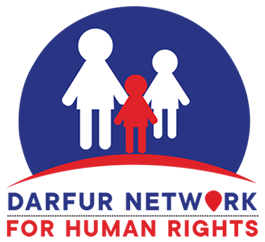January 27, 2025: The situation for Sudanese refugees in South Sudan remains critical, with ongoing violence and instability leaving thousands in precarious conditions. Despite the efforts of humanitarian organizations like the United Nations (UN), many refugees face severe hardships. Some have chosen to return to Sudan, while others have fled to Uganda in search of safety. However, a significant portion of refugees remains in Wedwill Camp, struggling with overcrowding, limited resources, and an uncertain future.
Grave Risks of Returning to Sudan
For refugees contemplating a return to Sudan, the dangers are profound. The country continues to be plagued by armed conflict, pervasive insecurity, and the near-total collapse of basic services. Many areas are controlled by armed groups, leaving returnees unable to rebuild their lives.
Moreover, refugees who return often face accusations from the Rapid Support Forces (RSF) of supporting the Sudanese Armed Forces (SAF). These allegations have led to harassment, arbitrary detention, and violent reprisals. Such mistrust between factions exacerbates the reluctance of refugees to leave the camps. Ethnic and political affiliations further heighten the risk of persecution, forcing many to remain trapped in unsafe and overcrowded conditions.
Relocation Efforts and Overcrowding in Wedwill Camp
In an attempt to consolidate refugees, the UN has relocated individuals from Malakal, Renk Camp, Yida Settlement, and Gorom Camps to Wedwill Camp. While intended to streamline humanitarian support, this has led to severe overcrowding, straining resources and exacerbating tensions. Once a place of refuge, Wedwill Camp is now overwhelmed, with displaced populations and host communities vying for limited resources.
Destruction of Property and Livelihoods
The refugees’ plight reflects a deepening humanitarian crisis. Many have lost homes, property, and livelihoods due to ongoing conflict. Essential services within the camp have been destroyed, leaving vulnerable populations without access to clean water, healthcare, or education.
Economic opportunities have collapsed. Refugees who once operated small businesses or relied on farming for sustenance are now unable to work. The destruction of the camp’s market has left families dependent on humanitarian aid, with little hope of rebuilding their livelihoods. Additionally, refugees face hostility when collecting firewood or accessing farmland, further stripping them of the means to sustain themselves. These restrictions not only violate their rights but also threaten their survival and dignity.
Escalating Violence and Intimidation
Tensions between refugees and host communities have intensified, with incidents of verbal and physical abuse becoming more frequent. Refugees in Wedwill Camp report rising hostility as the humanitarian situation worsens.
A particularly troubling development has been the destruction of religious and cultural sites. The burning of three mosques within the camp, along with refugee properties, has deeply shaken the community. These targeted attacks amplify feelings of vulnerability and despair among refugees already grappling with trauma.
Social Media Blackout and Loss of Hope
The South Sudanese government has restricted access to social media platforms, leaving refugees in Wedwill Camp with limited communication options. WhatsApp is the only remaining platform, further isolating refugees from the outside world. This blackout has disrupted the flow of critical information and left many refugees feeling abandoned and hopeless. The psychological toll is evident, with refugees increasingly vulnerable to mental health challenges and trauma.
Struggle for Survival
Efforts to relocate the camp’s market to a safer location have faced resistance from the host community, which claims ownership of the proposed land. This ongoing dispute has further restricted refugees’ access to essential goods and services, exacerbating their hardship. With few viable options, many young refugees have begun leaving the camp in search of better opportunities, risking their lives in the process.
Call to Action
The situation in Wedwill Camp demands immediate and coordinated action to prevent further suffering. Urgent measures include:
- Increased Humanitarian Funding: Scaling up resources to address basic needs such as food, water, healthcare, and shelter.
- Dialogue Between Refugees and Host Communities: Facilitating conversations to ease tensions and promote peaceful coexistence.
- Advocacy for Refugee Rights: Pressuring governments and stakeholders to protect the rights of refugees and restore essential services.
- Relocation to Safer Areas: Collaborating with the UN to move refugees to environments where they can rebuild their lives.
Without these efforts, the cycle of deprivation and instability will continue, leaving refugees even more vulnerable to violence, exploitation, and despair. Urgent action is necessary to restore dignity, hope, and safety to Sudanese refugees in South Sudan.

![Wedwill Camp engulfed in flames, symbolizing the insecurity and devastation faced by Sudanese refugees in South Sudan. (Photo Credit: [DNHR])](https://dnhr.org/wp-content/uploads/2025/01/Screenshot-2025-01-28-095142.png)